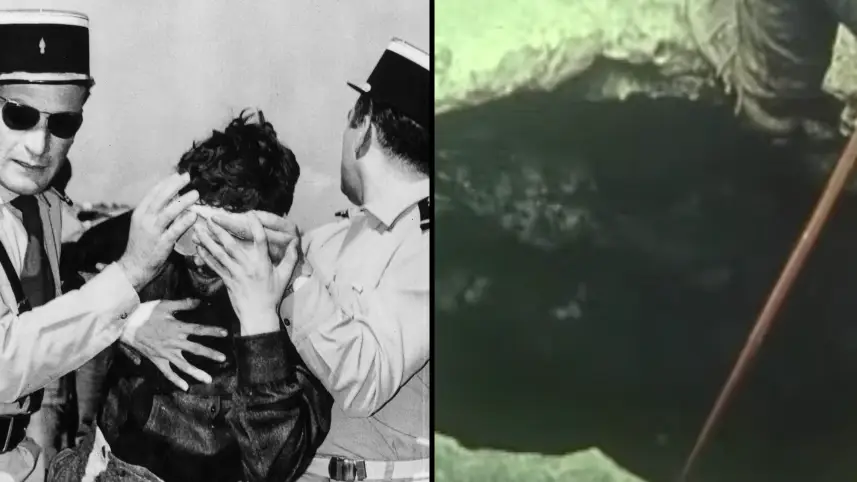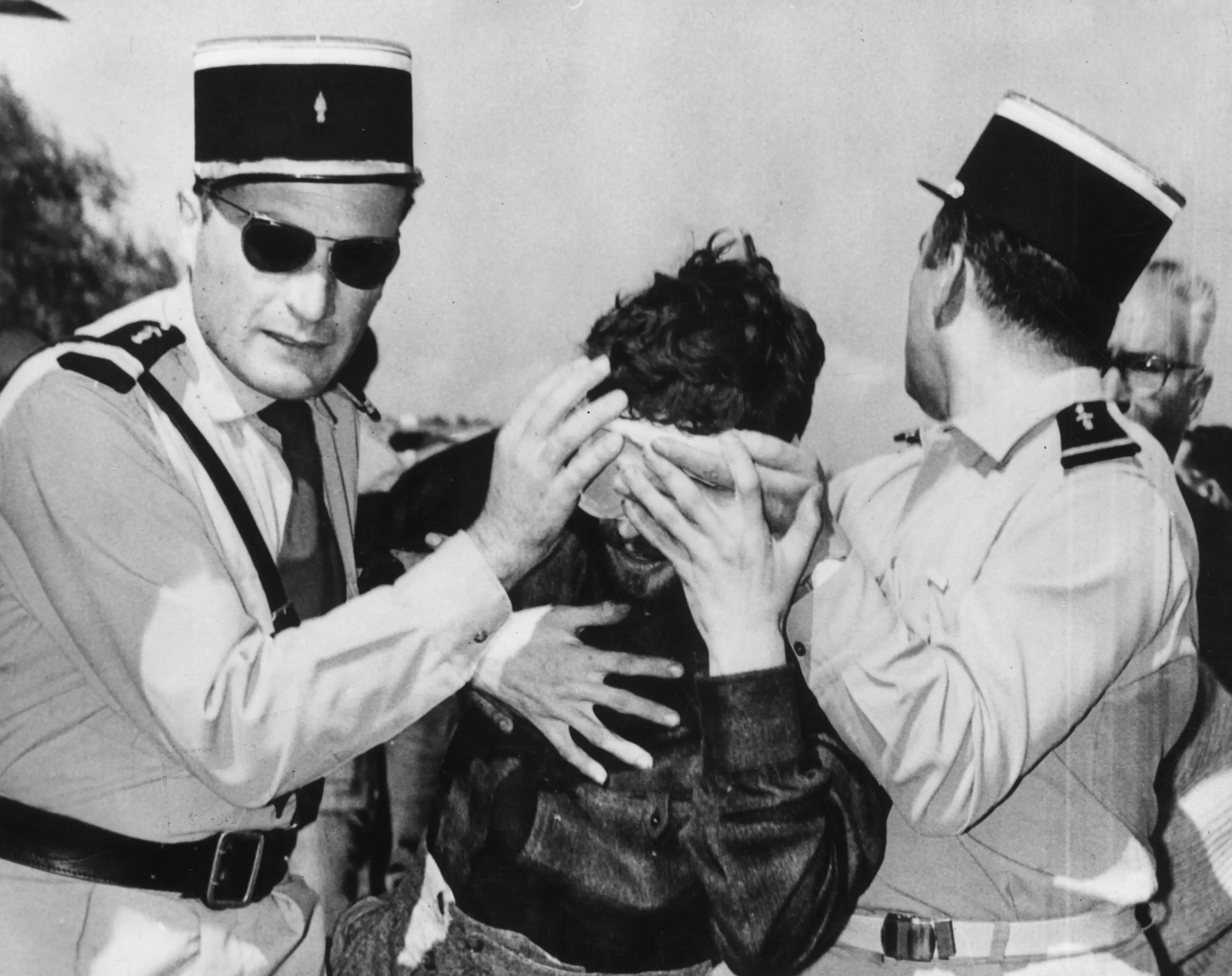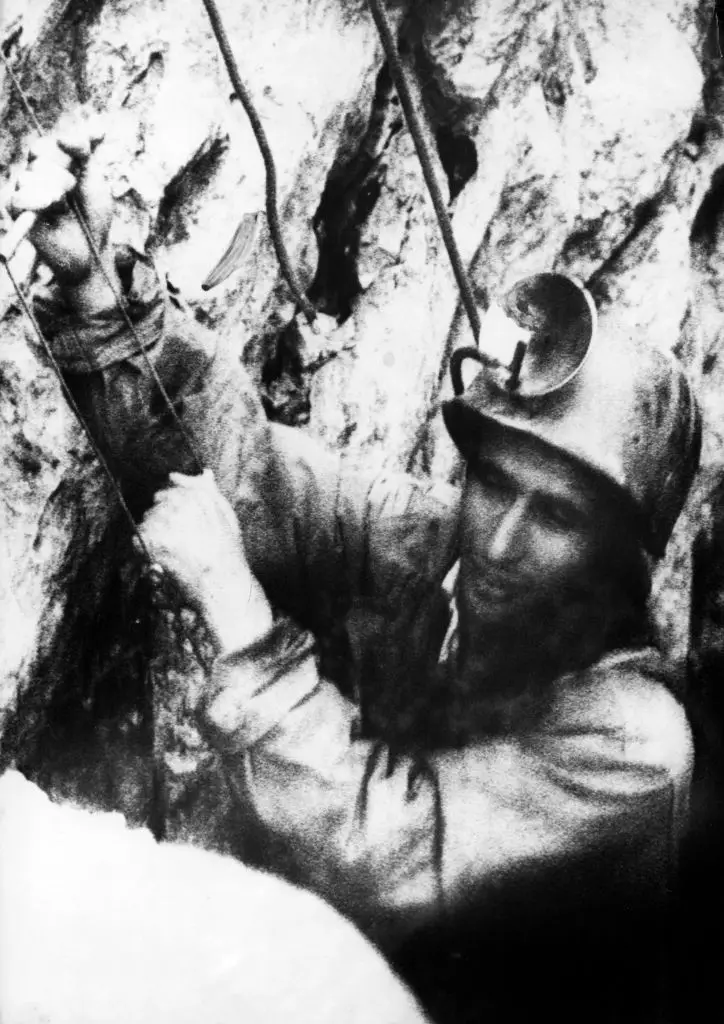
This is the incredible moment that a man living inside a cave emerged after two months in total darkness.
Michel Siffre, from France - who is now aged 85 - wanted to conduct some research into how humans experience time.
To carry out his investigation, he 'lived like an animal', cutting himself off from the entire world for two months and entirely removing the concept of time.

Advert
In 1962 at the age of 23 years old, the adventurer and scientist removed his wrist watch and confined himself 130 metres below the surface in the abyss of Scarasson, a mountain in the Ligurian Alps.
Siffre was particularly interested in how the lack of light would affect him during the stint, and so he only slept and ate intuitively - in other words, when his body told him to.
He was down in the cave for 63 days armed only with a torch - but his investigation was worth it.
Siffre made a series of incredible findings regarding how humans respond to living with zero information about time - with no clocks, calendars or sunshine to remind him.
He discovered that our bodies have their own clocks, which is now known as chronobiology.
You can watch the incredible moment Siffre emerges from the cave below:
Speaking of his landmark expedition, Siffre told Cabinet Magazine in 2008: "This idea came to me - this idea that became the idea of my life. I decided to live like an animal, without a watch, in the dark, without knowing the time.
"Instead of studying caves, you ended up studying time. Yes, I invented a simple scientific protocol.
"I put a team at the entrance of the cave. I decided I would call them when I woke up, when I ate, and just before I went to sleep. My team didn’t have the right to call me, so that I wouldn’t have any idea what time it was on the outside.
"Without knowing it, I had created the field of human chronobiology."

Each time he called his team, Siffre conducted two tests on himself - his pulse and a second, 'psychological test'.
He explained: "I had to count from 1 to 120, at the rate of one digit per second. With that test we made a great discovery: it took me five minutes to count to 120. In other words, I psychologically experienced five real minutes as though they were two."
Siffre was essentially experiencing everything to be twice as slow as it actually was.
When he was told the day had come for him to exit the experiment, he was quite shocked, believing he actually had an entire month still to go.
"My psychological time had compressed by a factor of two," Siffre said.
"I believe that when you are surrounded by night - the cave was completely dark, with just a light bulb - your memory does not capture the time.
"You forget. After one or two days, you don’t remember what you have done a day or two before. The only things that change are when you wake up and when you go to bed. Besides that, it’s entirely black. It’s like one long day."
Incredibly, Siffre went on to endure a six-month stay in a cave in Texas.
Following the longer stint, he made an amazing discovery, finding that without modern day time cues, he adjusted to a 48-hour cycle rather than the 24 hours we're all used to.
